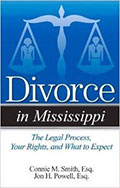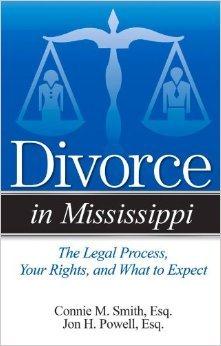REPORT FROM COUNSEL
SPRING 2014 ISSUE
BEFORE YOU START A BUSINESS . . .
Both heart and mind must be working well if the owners of a new small business are to experience success. While it is only human nature-not to mention fun-to indulge one's imagination about what a new business started from scratch could be like, would‑be entrepreneurs need to engage in some cold, hard thinking and planning before taking the plunge. At the risk of pouring cold water on some of the anticipation and excitement, what follows is a guide for how to plan for, and think through, the many decisions that must be made well before you have that "Grand Opening" sign made.
Why?
This may seem obvious, but you should know just what your reasons are for wanting to start a new business. If the motivations are weak, odds are the business will be a bust, whereas well‑founded reasons can help a business persevere through good times and bad. Some common reasons for starting a new business include escaping the whole nine‑to‑five routine (though it may be replaced by an eight‑to‑eight routine), answering to no one else, upgrading your standard of living, and being convinced that you can provide a needed product or service.
Why Me?
Let's face it, not everyone is cut out to be a captain of industry, or even captain of a small business. Maybe you need not subject yourself to an intensive psychological and life‑experiences evaluation, but be honest with yourself about whether you have the necessary characteristics, skills, and experience. A few examples give you the idea:
- Can you make yourself pull the trigger on an important decision?
- Do you see competition as exciting or just stress‑inducing?
- Are you willing and able to plan ahead?
- Do you like interacting with people you don't know?
- Do you have the perseverance, not to mention the physical stamina and health, to put in long hours if that's what is needed to make the business succeed?
- Are you, and anyone else financially dependent upon you, prepared to risk your savings in pursuit of the business dream if that's what it takes?
- Unless you are planning a one‑man band of a business, are you comfortable with hiring, supervising, and possibly having to fire other people?
- Are you reasonably well organized?
- Do you know anything about the paperwork and legal side of running a business, such as payroll and accounting, the permits or licenses you will need, or the regulations and laws that may apply to the business?
Why This Business?
You may have the best motives and a skill set that would be the envy of any MBA graduate, but if there is no niche for your planned business or, simply put, if not enough people will want to buy what you are selling, the new business will fail. The variables here include timing, location, and simply whether your business is feasible or practicable, so that you can be the one to fill that niche that you have first identified. Don't make your business the equivalent of carrying coals to Newcastle.
In economic terms, you want to do some investigation to determine whether there is some currently unmet demand for the product or service you want to supply. Then you want to meet that demand with a product or service that is competitive in quality, selection, price, and/or location.
In short, learn as much as you can about the market you will be in. Learn who your customers will be, and try to understand their needs and desires. Anticipate how your fledgling business will compare with any established competitors. What can you do in setting up and running the business to make sure you get your share of whatever market there is for your product or service?
How?
Turning the idea into bricks and mortar (literally or figuratively) involves a lot of decisions, some of which are best made only after getting professional advice. Still, you should acquire at least a layperson's understanding of the pros, cons, and consequences of each decision.
Choose a name for the business that you find appealing but also one that is informative for someone hearing it for the first time. Select the most appropriate business form, such as a sole proprietorship, a partnership, or a corporation. Investigate which local, state, and federal laws and regulations will apply to the business. This will run the gamut from laws of universal application (e.g., taxes) to laws specific to your business.
Make an unflinching and detailed examination of your financial picture. How much do you have now, how much will you need to start the business, and how much will you need to stay in business? Projecting cash flow into the future means taking into account such variables as seasonal trends in sales, the amount of cash taken out of the business for personal expenses, whether and when to expand the business, and the rate at which customers will pay off accounts if credit is extended to them.
Find a location for the business that is convenient for customers, appropriate in size and configuration, and zoned so as to allow your type of business. When you have settled on the product or service you will sell, calculate the inventory you should create, and maintain and locate reliable suppliers.
Finally, if you go to all the trouble and expense involved in creating a small business, don't forget to think about protecting against losing the business from such threats as fire, theft, robbery, vandalism, and liability for an accident. This means taking measures to provide security but also arranging for the appropriate types and levels of insurance.
ESTATE PLANNING-POWERS OF APPOINTMENT
A power of appointment is the power given to someone to allow that person to designate who will receive property or an interest in property. The creator of the power is called the donor, the individual having the power is the powerholder, and the possible recipients of the property are permissible appointees.
Powers of appointment used for estate planning have many variable forms. The powerholder may hold the power in a fiduciary capacity (such as the trustee for a trust) or nonfiduciary capacity. The power may be presently exercisable by the powerholder or may be exercisable only in the future, such as by the powerholder's will. The powerholder may or may not be the creator of the power. There may be multiple powerholders who must act jointly or a single powerholder. The persons in whose favor the power may be exercised may be unlimited, including the powerholder (sometimes called a general power of appointment), or may be limited. The beneficial interests that may be created in the appointees in whose favor the power may be exercised may be unlimited or limited. Various legal consequences in regard to powers of appointment will be affected by the restrictions imposed on the powerholder.
The trustee of a trust, a common type of powerholder, may be given discretion by the donor to invade principal for a life income beneficiary or for some other person, or discretion to pay income or principal to a named beneficiary, or discretion to allocate income or principal among a defined group of beneficiaries.
In short, the discretion given to the trustee gives the trustee the power to designate beneficial interests in the trust property as future developments indicate. This discretion in the powerholder underscores the primary advantage of using powers of appointment-they provide flexibility to adjust an estate plan to deal with circumstances that may arise years, or even decades, after the estate plan is created. The flip side to this flexibility is the power of appointment's main disadvantage for some-it means that the donor must give up some control over the ultimate disposition of assets in the estate.
There are other potential ramifications for powers of appointment that should be taken into account. For example, assets subject to a general power of appointment will be included in the estate of the powerholder, which could create unfavorable tax consequences. In addition, an improperly exercised limited power of appointment may become a general power of appointment under the law. All in all, whether to use a power of appointment and, if so, with what characteristics, are questions best answered with the advice of a lawyer well versed in estate planning.
PUBLIC USE REQUIRED FOR EMINENT DOMAIN
"Eminent domain" is the power of the federal, state, or local governments (and, in some limited circumstances, private parties, such as utilities and railroads) to take, or to authorize the taking of, private property for a public use without the owner's consent and upon payment of just compensation. That right to compensation is rooted in the federal and state Constitutions. While the delegation of the power of eminent domain is for legislatures, the determination of whether the condemnor's intended use of the land is for "the public use or benefit" is a question of law for the courts.
The public use or public benefit issue has spawned countless legislative and judicial reactions, especially since a controversial U.S. Supreme Court decision on the topic in 2005. In that case, owners of condemned property challenged a city's exercise of eminent domain power on the ground that the takings were not for a public use but, rather, for the benefit of private developers.
The Court held that the city's exercise of eminent domain power in furtherance of an economic development plan satisfied the constitutional "public use" requirement even though the city was planning to lease the condemned land to private developers for execution of the city's plan. The plan nonetheless served a public purpose, in the form of enhanced economic development, including such beneficial effects as the increased tax revenues and new jobs expected to come with such redevelopment.
Recently a city withstood a similar challenge to its use of eminent domain to acquire an easement on a private landowner's property in order to expand a sewer system by connecting city‑owned property to a sewer pump station underneath the landowner's property. The taking was for a public use even though the city ultimately planned to sell its property to a private affordable housing developer, because the sewer easement area would be available to the public at large in accordance with the appropriate rules, regulations, and standards of a metropolitan sewer district.
Apart from the constitutional requirements, the taking of the easement satisfied a state statutory mandate that a taking by a governmental entity must be for a "public use or benefit." Under the public benefit test for eminent domain, the city's desired use of the condemned property was for "the public use or benefit" because that use would contribute to the general welfare and prosperity of the public at large, not just particular individuals or estates.
In the case before the court, extending the sewer lines would allow development of the city's neighboring property, which the city sought to sell to the private developer to construct affordable housing. The existing pump station had sufficient capacity to service the city's land, and requiring the city instead to construct a sewer pump station on its land would have resulted in wasteful and unnecessary duplication of the city's resources. These facts added up to a public use or benefit justifying the taking, notwithstanding some benefits undeniably accruing to private parties as well.
TAX‑FREE GAINS FROM HOME SALES
One of the most significant tax advantages to owning a home comes at the back end of ownership, when you decide to sell it for a profit. A homeowner can exclude up to $250,000 of such profit from the federal capital gains tax. For married couples filing a joint tax return, the exclusion jumps to $500,000.
This big tax break does come with some basic requirements. It applies to the sale only of a principal residence, not of a vacation home or investment property. With some limited exceptions for poor health, job changes, and unforeseen circumstances, the taxpayer must have owned and used the home as a primary residence for at least two of the five years preceding the sale of the home. (But the two years need not be an uninterrupted time span.)
If the history of the home includes some business use, the owner cannot exclude that part of the gain that is equal to the depreciation claimed while the house was used as rental property. This scenario could arise when the owner rents out the house for a period of time but then moves back in, sells it, and otherwise qualifies for the exclusion related to that sale.
There is another two‑year rule that comes into play after a taxpayer claims the home‑sale exclusion. There is no limit to the number of times that the exclusion can be claimed for multiple sales, but, as a rule, once the exclusion is claimed, the taxpayer must wait two years before claiming another such exclusion.
For a married couple to qualify for the exclusion, it is sufficient if either spouse meets the ownership requirement. However, both spouses must meet the use requirement. Neither spouse is rendered ineligible for the exclusion because he or she had already excluded the gain on a different primary residence during the two years preceding the date of the current sale.
RECREATIONAL‑USE IMMUNITY FOR GOLF INJURY
The purpose of recreational‑use tort immunity statutes, which are common across the country, is to encourage private and public landowners to make their property available for public recreational use. To advance this public interest, these laws usually immunize the owners or occupants of real property from negligence liability toward people entering the land for recreation, often on the condition that the property is made available for use free of charge.
Typically the statutory immunity stops short of protecting defendants from liability for greater degrees of wrongdoing, such as acts or omissions that can be characterized as willful, malicious, or grossly negligent. Originally the perceived need for immunity arose because of the impracticability of keeping large tracts of mostly undeveloped land safe for public use, but the concept has evolved so that it need not necessarily involve vast expanses of wilderness.
The conditions for recreational‑use immunity can vary somewhat with the wording of the states' statutes, requiring case‑by‑case rulings depending on the facts before a court and the wording of each state's law. In keeping with a commonly recognized rule of statutory construction, because recreational‑use immunity statutes limit common‑law liability that predates such laws, a court must strictly construe language in the statutes in order to avoid any overbroad statutory interpretation that would give unintended immunity and take away a right of action for injured persons.
When a golfer at a city‑owned golf course slipped and fell on a walkway leading to a tee box, he claimed that the walkway was dangerously steep and narrow, causing his injuries. The city defended on the basis of a state recreational‑use immunity law. Before an intermediate appellate court, the city prevailed on one issue, about the golf course's coming within the statute, but the case was sent back to the trial court for resolution of a second issue, concerning the legal status of the injured golfer.
The golf course was sufficiently similar to "park" lands to be included in the definition of "premises" under the recreational‑use immunity statute even though there is no express mention of golf courses by the legislature. The golf course fit within the common definition of a "park," as it was a parcel of property kept for recreational use that was designed and maintained for the primary purpose of allowing users to engage in a recreational activity. Not only that, but the statute's list of types of land uses constituting covered "premises" includes a catch‑all reference to "any other similar lands."
However, for the immunity to apply to the city, it was also necessary for the golfer to have been a "recreational user" under the law. This, in turn, meant that the golfer must have paid either no admission fee or no more than a "nominal fee," to use the term from the statute. In this case, there was no question that a fee was paid to play golf, but since the lower court had not reached the question of whether that fee was "nominal," it would have to decide that issue.
Generally a nominal fee is one charged only to offset the cost of providing the educational or recreational premises covered by the immunity statute. Some of the factors affecting this issue might include, for example, the amount of the fee, the extent to which it approximates the value of the service received in exchange for it, and the fees charged for similar recreational uses in the community.
In something of an ironic twist, if it were to be found that the golfer had paid no more than a "nominal fee," then in exchange for that inexpensive round of golf, the golfer will have ultimately paid a higher "price" in the form of being precluded from recovering damages from the golf course owner for negligence.





